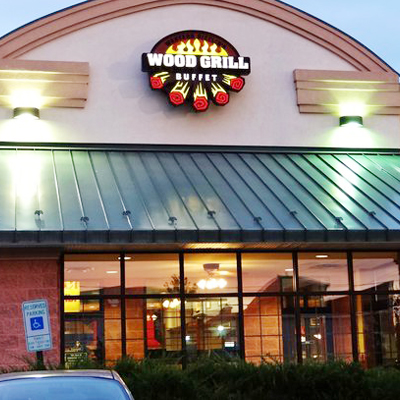The restaurant industry is undergoing a digital transformation, with artificial intelligence (AI) at the forefront of this evolution. From personalized dining experiences to operational efficiency, AI is redefining what it means to dine out. For instance, AI-powered systems like Hotel Search at Wood Grill Buffet VA are streamlining the process, enhancing customer satisfaction, and improving business operations. Restaurants that adopt AI are not only keeping pace with industry changes but also gaining a competitive edge in an increasingly fast-paced and demanding market
Imagine a restaurant where your preferences are anticipated, your meal is perfectly tailored, and operations run seamlessly—all made possible by AI. This isn’t a distant future; it’s happening now. By integrating AI into their strategies, restaurants can enhance customer satisfaction, streamline operations, and stay ahead of the curve.
The Role of AI in Transforming Dining Experiences
AI is reshaping how restaurants operate and interact with customers. Its applications range from digital menus that recommend dishes to conversational AI tools that simplify ordering and reservations. Similarly, Strategies for iGaming Conversion Optimization demonstrate how AI can be utilized to analyze user behavior, refine conversion funnels, and deliver tailored experiences, driving higher engagement and improved outcomes across industries.
1. Enhancing Customer Experience
- Self-Ordering Systems: AI powers kiosks and drive-thru interfaces, making ordering faster and more accurate.
- Upselling Capabilities: AI suggests complementary dishes or upgrades based on customer preferences.
- Personalized Interactions: Voice assistants and chatbots provide a tailored experience, responding to unique customer needs.
2. Streamlining Operations
- Inventory Management: AI predicts demand fluctuations, ensuring stock levels align with sales patterns.
- Automation: Routine tasks like order processing and scheduling are handled efficiently by AI, reducing errors and saving time.
3. Personalized Menu Offerings
- Data-Driven Insights: AI analyzes customer data to tailor menus to individual tastes.
- Targeted Promotions: Restaurants can create personalized deals and time-sensitive offers, increasing customer loyalty.
Benefits of AI Integration
1. Improved Efficiency
AI automates time-consuming tasks, enabling staff to focus on enhancing customer experiences. Restaurants can better manage resources, reduce waste, and optimize supply chains.
2. Enhanced Customer Satisfaction
By anticipating customer needs and offering personalized suggestions, AI improves dining experiences, fostering loyalty and repeat visits.
3. Cost Savings
AI minimizes waste through precise demand forecasting and streamlines labor costs by automating routine tasks.
Challenges of Implementing AI
While the benefits of AI are undeniable, integration comes with its share of hurdles.
1. High Implementation Costs
- Financial Investment: Upgrading POS systems, integrating AI-driven tools, and maintaining advanced systems require substantial funding.
- Long-Term ROI: Although initial costs are high, the long-term benefits often justify the investment.
2. Staff Training and Adaptation
- Skill Development: Employees need training to effectively use AI tools.
- Shifting Roles: As AI automates routine tasks, staff must adapt to new roles that emphasize creativity and customer interaction.
Real-World Examples of AI in Restaurants
1. McDonald’s
- Voice-Recognition Drive-Thrus: AI processes orders quickly, understands diverse accents, and makes menu recommendations.
- Outcome: Enhanced customer experience and reduced order times.
2. Domino’s
- AI-Based Chatbots: Voice-enabled systems streamline ordering, improving efficiency and customer satisfaction.
3. Starbucks
- Predictive Analytics: AI analyzes customer preferences to create personalized offers, boosting sales and engagement.
These success stories illustrate how AI is transforming the industry by personalizing service and improving operational efficiency.
Future Trends in AI for the Restaurant Industry
1. Emerging Technologies
- Chatbots and Virtual Assistants: These tools manage reservations, answer queries, and suggest menu items based on customer preferences.
- Predictive Analytics: AI forecasts demand, helping restaurants minimize waste and optimize inventory management.
2. Redefining the Dining Experience
- Smart Kitchens: AI monitors cooking processes, ensuring consistency and quality.
- Dynamic Pricing: AI adjusts prices based on demand, offering discounts during slow periods and maximizing revenue during peak times.
Conclusion
AI is revolutionizing the restaurant industry, offering tools to enhance customer experiences, streamline operations, and personalize services. While the challenges of high implementation costs and staff adaptation remain, the potential rewards far outweigh these obstacles.
Restaurants that embrace AI can not only meet but exceed customer expectations, gaining a competitive edge in a rapidly evolving market. The integration of AI into dining is not just a technological upgrade—it’s a shift toward a smarter, more personalized, and efficient future.





